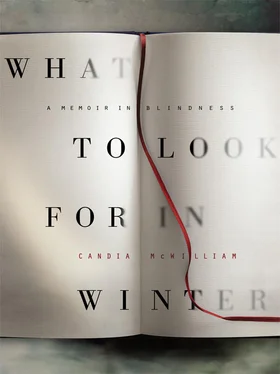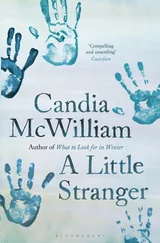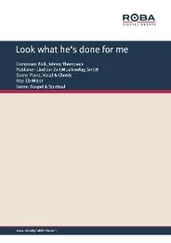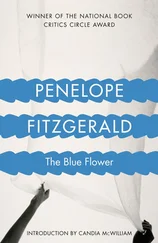Everything got better in Edinburgh. I was surprised by what happened to me at the Book Festival. I had felt I was there as a visitor, more than an author. Then someone got hold of the human story, the story that makes out of my whole recent experience something soppy; the ‘I once was blind, but now can see’. Which is far too simple and not true, so it will probably be what is remembered.
I hope not, though.
It is a human story. It is also a story about words. If I hadn’t been asked to write about going functionally blind for the Scottish Review of Books, The Times would not have reprinted the piece. Marion Bailey would not have read the piece nor so generously got in touch with me and told me about Mr Foss. I owe my present new-made sight to many, but directly to the Scottish Review of Books, The Times , John and Marion Bailey, and Alexander Foss.
The fight inside my head will not disappear, but the curtains may be lifted so that it may look outwards from its internal drama.
In there in my brain, decisions have been taken to shut my eyes down, taking much else with them.
Out there in the world, someone was imaginative enough to know what it might be like to be able to see and not to be able to see, and clever and knowledgeable and courageous enough to know that it might be done, and how.
Now it was the paper that owns the Scottish Review of Books that broke my little story. A few others went with it. The general tone was ‘Triumph over Tragedy’. Not so, of course. One interviewer, from The Times , asked very shrewd questions. In each case he hit the spot. He asked, ‘But has your condition gone or is it just held off?’ And he asked, ‘What has happened to your idea of yourself?’
My condition, or ‘the’ condition, so that it knows I’m not hugging it possessively to me, hasn’t gone. It is held off. That must be good enough for me. It fights back day and night and I feel it punching from within my head. I have a sore head and tense eyes most of the time. But I am not shut in in the dark alone as I was.
You, having read this book, will have some idea of the answer to the second question. I worry that I will look ugly in my children’s wedding pictures. I do look peculiar. I often don’t recognise myself. I realise that I did rely, to an extent I did not understand, on how I looked. But I never knew that I was, sometimes, beautiful. I didn’t feel it. Sometimes I see it now, in a photograph, and I think, ‘You fool, you didn’t do it right at all. When you looked like that, you felt as though you looked like this. You had it coming to you.’
So much for vanity. I have to meet new people with my self and not my face. People who knew me before are sometimes shocked. Often they don’t recognise me. Sometimes I feel cross then relieved about this because I knew they were creeps all along and I can add it to my dossier on them and walk on, at others I feel sad but sad as one feels in an afternoon alone when one has just missed a telephone call; sad, but fairly sure that life is like that and that it might equally well have been a caller you didn’t want to hear, a wrong number, or some unreal win on a non-existent lottery for which you haven’t signed up.
To some degree at the age I am, one is composed of loss, and here is a loss I have behind me, the loss of a beauty that wasn’t a safe gift for me. Loss is the new beauty after a certain age, a matter for refining and sharing. I didn’t ever admire the sort of looks I had. I looked a bit thick, where thick overlaps with apparently sexy. A bad mix for a sardonic introvert.
As to the less superficial stuff. My identity is shot to bits, I cannot pretend it is not. But I have some chance of finding it and maybe even changing it a little or patching it up where it was wearing out or set stubbornly in the wrong direction, frozen by habit.
What, if not writing, will be the home of any self I can build from the bits I finding lying around me as I look about after these years when I came to naught and thought that this was it?
Why write?
The tree isn’t dead yet.
I want to pass it on, to pass the shiver that comes when we read and know for a time what it is to live, think, feel and be inside the mind of another.
There are phrases that stick. We can’t probably be lucky enough to write one–
‘And still she wished for company’
‘Quoth the false knight upon the road’
‘The Scots Lords at his feet’
— but we can recognise one, and pass it to a friend, a baton in the dark.
I write because the work is real. It involves concentration and a study of life, which is all we have. I write because I want to help my parents out of their graves, she wherever she is, and he in the wall of Scottish heroes. I write because I cannot often express things face to face, being at once (or I was; we’ll see about that) performative and shy. I write because I don’t think most of my children are interested at the moment in what may interest them after I am dead, the half of themselves that will have been buried with their mother, but that lives in them. I write because I want to write more well. And better. And better. I write because I read, and they are my patriotisms and loyalties, reading and writing. I write because it is the act of glorification and gratitude to which I am most suited to take up my apprenticeship. I write in order to keep abreast of the swim of words and to hold the world — whose glory is, with its sadness, that it will not be held.
I write because I wake up, I fall short, I sleep, I wake.
I write because the world and all I love in it is forcing itself upon my attention and to pay attention is everything.
I write because words change one another when they lie together. Because words change things. They make people see.
Words can mend what is broken, or render it more interesting than mended. They can make people attend to one another.
They are what we have that cannot be taken from us and what we have that we can give to other people without feeling stolen from.
Also plain words are always under threat. The languages of severely systematised untruth and imprecision, that exactly mean what they don’t say, don’t say what they mean, rejig it how you will, are used to sell everything from systems of government to hair gloss. Readers are mistrusted by those in power and not encouraged to keep their side of the bargain, which is to partake in the work themselves. If you wait for everything to be signalled, in a work of fiction, you lose connection with man and stars because you are listening to the satnav. A good writer has put in the invisible turnings, the neglected hedgerows, the boarded-up shops and dead men within the shadows or environs of his story, so that the reader may feel the wind in his mind, smell the wild rose, hear the rats, smell the deep pond, as he passes them. Do not underestimate the silences or breaks in a line.
I write because I’m not dead yet. And I seem to want not to be.
I flew back with my older son and his girlfriend from Italy. The queue to get back into this country at Gatwick was long. I took my place in it. Oliver and his girlfriend went ahead, into the exit channel that was for identification by the irises of their young eyes. Their lives move at another speed, the speed of sight. Over the entrance to their route back into this country was a graphic of an eye. Eyes are everywhere, if you look. I want to attest to the goodness of life and I want to share something. If it isn’t a life — well, then, let it be a sentence.
I used to have a life connected by many strands and anchors. It is less so now, considerably. Not all of them were more than notional. Several of them have been worn and loosened by time. Many have strengthened in spite of removal, change or death.
Читать дальше











